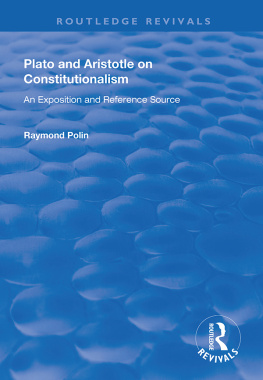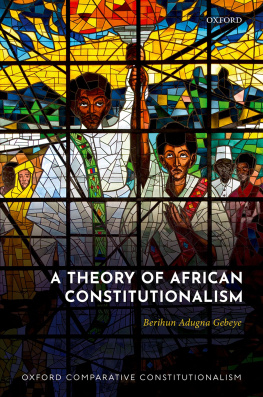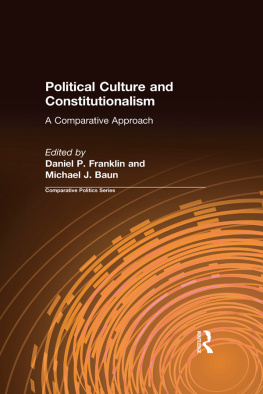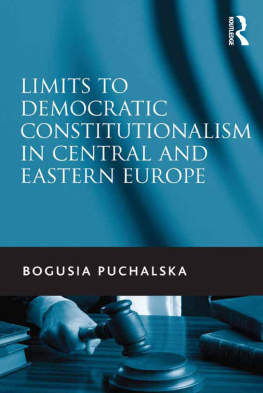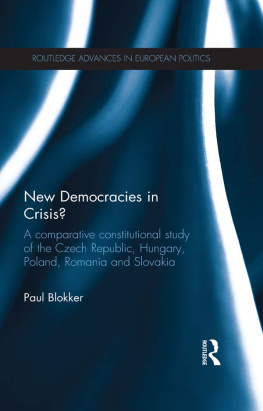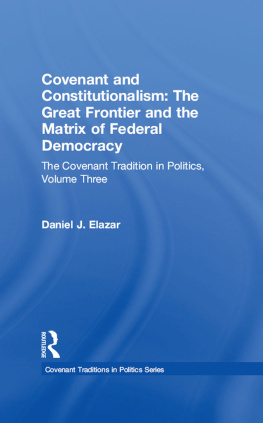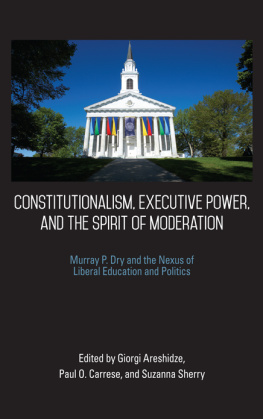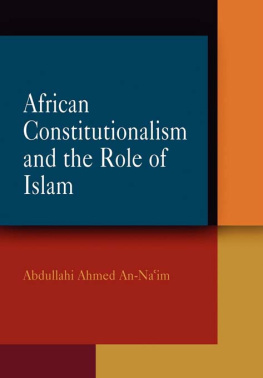
Clearly written, assiduously researched, and never fantastical, Democracy, the Courts, and the Liberal State is a delight-filled primer for how to overhaul our thinking about constitutionalism to uphold liberal democratic values for the twenty-first century. If David Miles can imagine and explain taking democracy seriously, then surely we can conceive of the serious institutions to build it!
Malik R Dahlan, Professor of International Law and Public Policy at Queen Mary University of London
Electoral processes are a crucial yet curiously neglected feature of any constitutional system. Not only legal theorists but also constitutional courts often have had overly simple, not to say simplistic, views of how these processes might best operate so as to secure and support core liberal democratic principles. David Miles excellent book breaks new ground in tackling this issue head on. In particular, he provides a critical and comparative examination of the core decisions on matters of electoral process of the US Supreme Court and the German Federal Constitutional Court. His analysis highlights both the importance of courts in fostering a flourishing liberal democracy, and the strengths and weaknesses of current judicial reasoning in the United States and Germany in this area.
Richard Bellamy, Professor of Political Science, UCL
Democracy, the Courts, and the Liberal State
Reformulating a problem of both constitutionalism and liberalism discussed in the works of Ernst-Wolfgang Bckenfrde, Hannah Arendt, and Alexis de Tocqueville, the book examines one generally overlooked manifestation of constitutionalism: the role of the courts in shaping democratic politics and the inter-relationship between citizens and state.
Drawing on constitutional history, law, and political theory, David Miles argues that constitutionalism cannot be seen merely as an institutional mechanism to limit government, as it also has a crucial civic dimension upon which the liberal state depends. Utilising the works of Bckenfrde, Arendt, and Tocqueville, constitutionalism is conceived in the book as part of a broader system of communal norms which sustains representative democracy and liberalism. Through an analysis of judicial interventions in the electoral processes of the United States and Germany, Miles explores the role of civil society actors in transforming constitutionalism through legal challenges to oligarchical or exclusionary practices. He assesses how, in adjudicating these cases, the US Supreme Court and the German Constitutional Court have mediated the tension between threats to stability and the imperative of democratic renewal.
Democracy, the Courts, and the Liberal State will be of interest to scholars, students, and practitioners interested in comparative politics, political theory, and constitutional law and history.
David Miles is a former Carnegie Scholar and teaches international relations at the University of St Andrews. His academic and research interests include comparative politics, political theory, American and German constitutional history, US foreign policy, international relations, and identity. He is Editor-in-Chief of Global Politics Magazine.
Routledge Innovations in Political Theory
Epistemontology in Spinoza-Marx-Freud-Lacan
The (Bio)Power of Structure
A. Kiarina Kordela
Aesthetics and Political Culture in Modern Society
Henrik Kaare Nielsen
Post-Fukushima Activism
Politics and Knowledge in the Age of Precarity
Azumi Tamura
Reconstructing Nonviolence
A New Theory and Practice for a Post-Secular Society
Roberto Baldoli
Rethinking Positive and Negative Liberty
Maria Dimova-Cookson
The Problem of Value Pluralism
Isaiah Berlin and Beyond
George Crowder
On Biopolitics
An Inquiry into Nature and Language
Marco Piasentier
Democracy, the Courts, and the Liberal State
A Comparative Analysis of American and German Constitutionalism
David Miles
Legislative Deliberative Democracy
Freedom of Speech During War
Avichai Levit
Democracy, the Courts, and the Liberal State
A Comparative Analysis of American and German Constitutionalism
David Miles
First published 2021
by Routledge
52 Vanderbilt Avenue, New York, NY 10017
and by Routledge
2 Park Square, Milton Park, Abingdon, Oxon, OX14 4RN
Routledge is an imprint of the Taylor & Francis Group, an informa business
2021 Taylor & Francis
The right of David Miles to be identified as author of this work has been asserted by him in accordance with sections 77 and 78 of the Copyright, Designs and Patents Act 1988.
All rights reserved. No part of this book may be reprinted or reproduced or utilised in any form or by any electronic, mechanical, or other means, now known or hereafter invented, including photocopying and recording, or in any information storage or retrieval system, without permission in writing from the publishers.
Trademark notice: Product or corporate names may be trademarks or registered trademarks, and are used only for identification and explanation without intent to infringe.
Library of Congress Cataloging-in-Publication Data
A catalog record for this title has been requested
ISBN: 978-0-367-20032-9 (hbk)
ISBN: 978-0-429-25925-8 (ebk)
Typeset in Times New Roman
by Wearset Ltd, Boldon, Tyne and Wear
For my Mother and Sister, and the memory of my Father
Turning and turning in the widening gyre
The falcon cannot hear the falconer;
Things fall apart; the centre cannot hold;
Mere anarchy is loosed upon the world,
The blood-dimmed tide is loosed, and everywhere
The ceremony of innocence is drowned;
The best lack all conviction, while the worst
Are full of passionate intensity.
(W. B. YeatsThe Second Coming, 1920)
Contents
Far more friends, colleagues, family members, mentors, and others helped me in the process of writing this book than I will ever be able to thank. I will try and make a stab at doing so though.
Much of the research that has gone into the book was originally made possible by the generous financial support of the Carnegie Trust for the Universities of Scotland during my time as a Carnegie Scholar. Without this support, I would never have been able to begin the research that led to this book, let alone bring it to completion.
First and foremost, I need to thank Tony Lang for his support, friendship, company on the golf course, the great discussions, and the many books hes lent me over the years (some of which I still need to give him back). Tony was a constant source of guidance and encouragement, and his importance as a friend and mentor has not diminished since I finished my PhD. Working with Tony at the Centre for Global Constitutionalism as an Associate Fellow was professionally stimulating and gave me an important insight into the normative significance of constitutionalism in an increasingly fragmented and unstable global political context.


